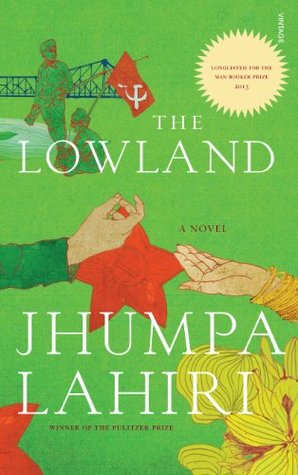More on this book
Community
Kindle Notes & Highlights
They turn victims into criminals. They aim guns at people who can’t shoot back.
But Udayan said that golf was the pastime of the comprador bourgeoisie.
He remembered the silly signals he and Udayan used to send to one another, pressing the buzzer, making each other laugh. He didn’t know how to respond to the message Sinha was transmitting, which Udayan so readily received.
Here life ceased to obstruct or assault him. Here was a place where humanity was not always pushing, rushing, running as if with a fire at its back.
Subhash didn’t know how to describe India’s fractious politics, its complicated society, to an American. He said it was an ancient place that was also young, still struggling to know itself.
Held up to heat, the essence of the wax remained, even as its physical aspect changed. It was the mind, not the senses, that was able to perceive this, she said.
But what makes it relevant? Plato says the purpose of philosophy is to teach us how to die. There’s nothing to learn unless we’re living. In death we’re equal. It has that advantage over life.
More than once, offering him a biscuit, asking if he needed more tea, his mother called him Udayan instead of Subhash. And more than once he answered, not correcting her.
It validated the step she’d taken, in marrying him. It was like a high mark after a difficult exam. It justified the distance she continued to maintain from her new husband. It suggested that maybe she didn’t have to love him, after all.
She looked back at the set of footprints they had made in the damp sand. Unlike Udayan’s steps from childhood, which endured in the courtyard in Tollygunge, theirs were already vanishing, washed clean by the encroaching tide.
Do you love me? Yes, Bela. I love you more. More than what? I love you more than you love me. That’s impossible. That’s my job. But I love you more than anybody loves anybody. He wondered how such powerful emotions, such superlative devotion, could exist in such a small child.
With children the clock is reset. We forget what came before.
Long ago she’d wanted her work to be in deference to Udayan, but by now it was a betrayal of everything he had believed in. All the ways he had influenced and inspired her, shrewdly cultivated for her own intellectual gain.
Isolation offered its own form of companionship: the reliable silence of her rooms, the steadfast tranquility of the evenings. The promise that she would find things where she put them, that there would be no interruption, no surprise. It greeted her at the end of each day and lay still with her at night. She had no wish to overcome it. Rather, it was something upon which she’d come to depend, with which she’d entered by now into a relationship, more satisfying and enduring than the relationships she’d experienced in either of her marriages.
Every time she had to open a new jar of jam, she resorted to the trick he’d taught her, of banging the edge of the lid three or four times with a spoon, to break the seal.
The coincidence coursed through him, numbing, bewildering. A pregnant woman, a fatherless child. Arriving in Rhode Island, needing him. It was a reenactment of Bela’s origins. A version of what had brought Gauri to him, years ago.
She walked away, aware that the woman and boy had already forgotten her. She was like a moth that had strayed into a room, only to flutter out of it again. Unlike Gauri, they would never think back to this moment. Though she’d had a hand in something they would mourn all their lives, she had already slipped from their minds.
It twisted through the love she felt for her father, her daughter, her guarded fondness for Drew. Its destructive current uprooted those things, splintering them and flinging them aside, shearing the leaves from the trees.
Even now Bela felt the urge to strike her. To be rid of her, to kill her all over again.
Standing there, unable to find him, she felt a new solidarity with him. The bond of not existing.


